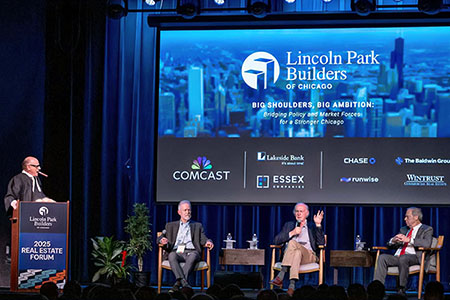
Oct. 9, 2017 – The mortgage interest tax deduction – the bedrock on which the nation’s housing policy was built 75 years ago – may be on shaky ground as the Trump administration crafts its new federal tax plan. What is even more surprising, analysts say Capitol Hill real estate lobbyists are divided and fighting among themselves for the future of the coveted mortgage interest deduction that potentially benefits 74 million homeowners and creates $70 billion in annual federal income tax breaks. Insiders report the National Association of Home Builders changed its stance on the importance of the mortgage interest deduction, while the National Association of Realtors is lobbying hard for the survival of the deduction.
Earlier, the NAHB stressed that the mortgage interest deduction has been a cornerstone of American housing policy since the inception of the tax code. But after President Donald Trump announced his new tax plan, which would double the standard deduction and eliminate state and local tax deductions, such as property taxes, NAR continued to lobby for support of mortgage interest deduction, while the NAHB did not. Home builders said they voted to revise their policy regarding the nation’s tax code considering recent discussions on tax reform between congressional leadership and the Trump administration. The vote, said the association, “gives NAHB greater flexibility as the tax debate unfolds and stakeholders seek consensus to shape a tax code that best serves the nation’s consumers and small businesses.”
While NAHB has concerns with the doubling of the standard deduction, Tobin explained, “For us, it’s an opportunity for our industry to remain flexible in its ability to respond to potential changes down the road.” As the Trump administration continues to work through tax reform, NAHB said it is promoting the following tax policies...
Tobin noted that although the NAHB hasn’t seen any concrete proposals, the administration has clearly stated that they want homeownership to be a priority going forward. As a guardian of housing tax incentives, NAHB said it will keep defining that incentive and ensure homeowners that the housing policy is still supported. “Right now, the [mortgage interest deduction] is a middle-class tax break that helped people buy and afford the home they already purchased,” said Tobin. With fewer incentives, low homeownership rate will get lower Experts say both the doubling of the standard income tax deduction and eliminating local and state real estate tax deductions effectively would challenge or erase incentives for homeowners, and potentially inhibit the national homeownership rate which has slipped to about 63 percent from nearly 70 percent before the Great Recession.
“When combined with the elimination of the state and local tax deduction, these efforts represent a tax increase on millions of middle-class homeowners. That tax increase flies in the face of a reform effort ostensibly aimed at lowering the tax burden for Americans. At the same time, the lost incentive to purchase a home could cause home values to fall.” An analysis by PricewaterhouseCoopers commissioned by NAR found homeowners earning $50,000 to $200,000 – thereabout middle class – would realize an average $815 more in taxes in the year after the proposed reform takes effect, while non-homeowners earning in the same range would see an average $516 less. The analysis also found a ten percent plunge in home values, which could push some homeowners back into negative equity, undoing the recovery. “Plummeting home values are a poor housewarming gift for recent home buyers and a tremendous blow to older Americans who depend on their home to provide a nest egg for retirement,” said Brown. “Congress can still score a win for American families by promoting lower rates and comprehensive reform that doesn’t single out homeowners for a tax hike, while also preserving important investment incentives such as 1031 like-kind tax-deferred real estate exchanges.” Danielle Hale, chief economist at Realtor.com, says proposed changes – such as the increased standard deduction and elimination of other itemized deductions – mean that many who claim the mortgage interest deduction under today’s tax laws will no longer be able to do so. Although the plan recognizes the role of the mortgage interest deduction in strengthening society via homeownership, Hale says other changes in the plan could affect its incentive value. “The proposed tax plan also eliminates most types of itemized deductions, including payments for state and local taxes, which include property taxes. When you consider the total package, many middle-class homeowners are really looking at a tax increase,” she said.
|

















